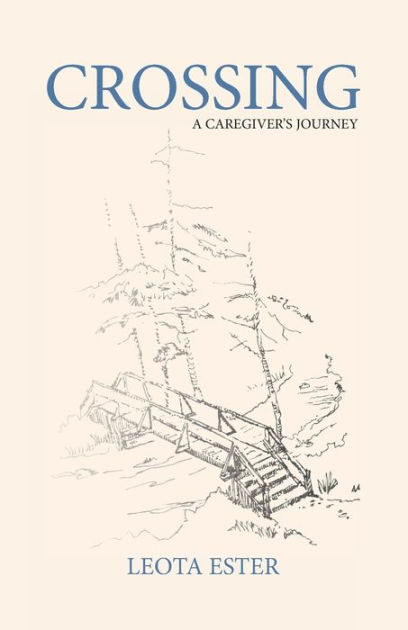Crossing: A caregiver’s journey – Book Review by Susan H. McFadden
Posted in News, General | Tagged in dementia journey, poetry, dementia poem, dementia awareness, dementia caregiver, dementia friendly, dementia and the arts, caregiver, susan mcfadden, fox valley memory project, dementia fox valley

I have read a lot of poetry by people caring for loved ones with dementia, but this collection of poems is by far the best in my opinion. It describes a journey of love and care from the first moments of being concerned about someone’s cognitive abilities, to the time when care is no longer possible in the home and a transition must be made to a residential care community, and then to death and grief. The book opens by quoting a poem by Robert Frost:
A poem begins
as a lump in the throat
a sense of wrong
a homesickness
a love sickness.
The poems that follow are all written by Leota Ester. They are short and powerful. The first one describes how she observed her husband searching in their home for a broom that had always been stored in a nearby closet. He couldn’t find the broom and she knew he didn’t know any more where it might be. These small, meaningful, often distressing moments are beautifully captured in these poems. For example, the second poem in the collection describes the time when Lee could not remember that Leota was his wife.
These poems are honest about the “sense of wrong,” the “homesickness” for the time before dementia, and the “love sickness” that erupts in moments like the time Leota observed Lee shaving. This ordinary encounter evoked thoughts about her enduring love for him from the time when they were young, on through middle-age and then to being in front of that bathroom mirror when they smiled at one another with love.
Anyone who has journeyed with a precious person living with dementia will appreciate the way Leota extracts poignant meaning from seemingly ordinary encounters, some joyful, some overwhelmingly sad. The decision that she had to make about Lee’s move to Brewster Village was wrenching but necessary. Her descriptions of visiting him there will be familiar to people who have undertaken similar relocations of loved ones. It’s so hard.
I have known Leota for a long time and even before I knew about the poems she was writing about Lee, I was impressed by how she worked to keep people connected to Lee after he had to move from their home. She used to invite their friends to join them at Brewster Village for fancy dinners that she set up in the family room near the household where Lee lived. This is such a beautiful example of dementia friendliness.
In addition to her descriptions of Brewster Village, readers in the Fox Valley will recognize other references in her poems. For example, she talks about going to the PAC for Fox Valley Symphony concerts, dropping off clothes at Goodwill, and eating at the Queen Bee on College Avenue in Appleton. She names friends who supported her through the journey with Lee and some readers may know these friends.
This is a book that speaks quietly but forcefully about what it is like to love someone slipping further into dementia and then death. Every short poem is a gem. Read it slowly and savor the depth of feeling Leota Ester conveys in just a few words.
Ester, L. (2019). Crossing: A caregiver’s journey. New Smyrna Beach, FL: BluewaterPress LLC.
Susan H. McFadden
Leave a Reply